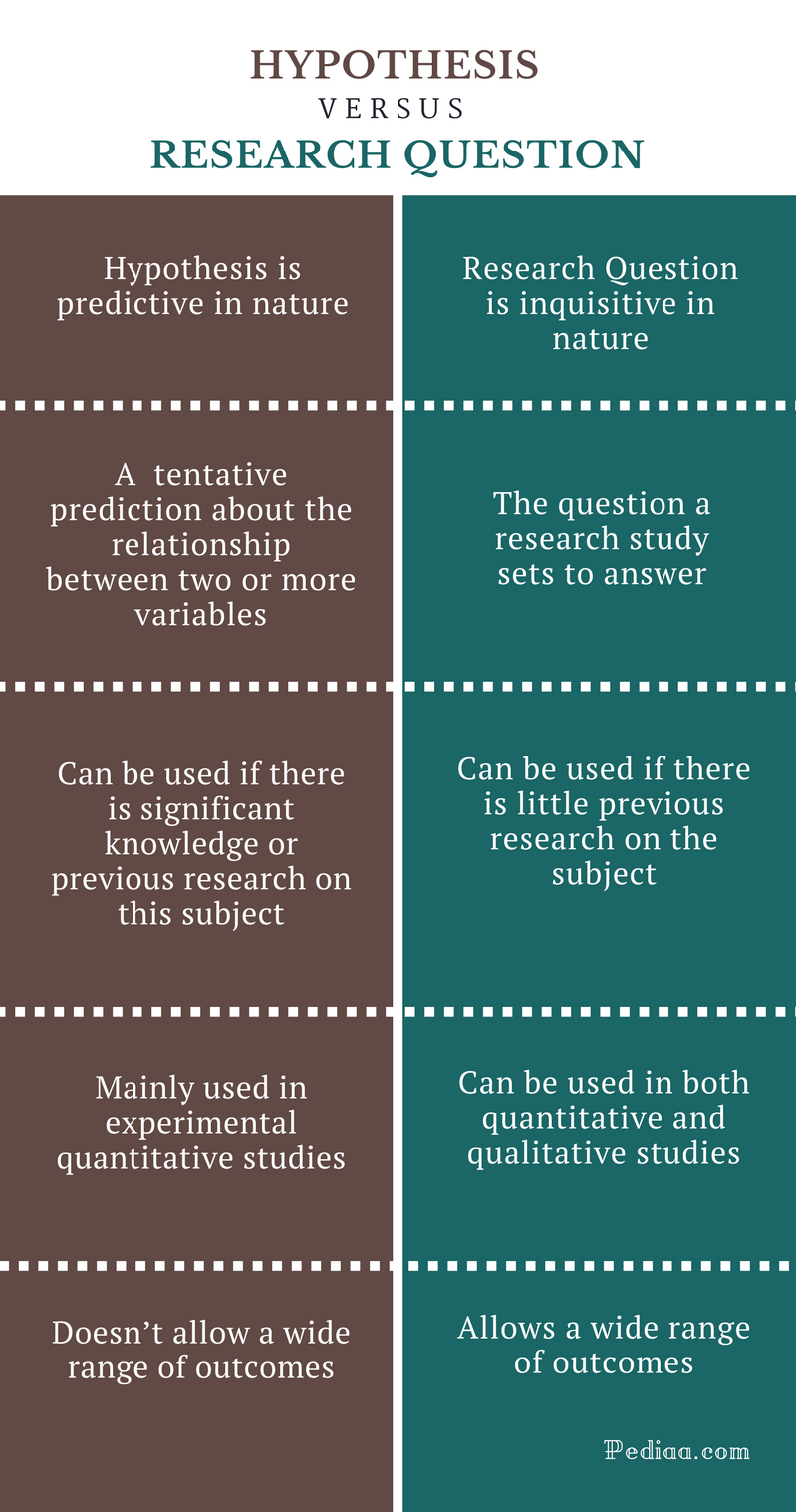主な違い – 仮説とリサーチクエスチョン
リサーチクエスチョンと仮説は研究調査の基礎となるもので、仮説とリサーチクエスチョンは研究調査の基礎となります。 リサーチクエスチョンを立てたり、仮説を立てたりすることで、研究のアプローチを決定することができます。 リサーチクエスチョンとは、調査研究が答えを出そうとする疑問のことです。 仮説は、研究対象が証明または反証しようとする声明です。
この記事では、
1.仮説とリサーチクエスチョンの主な違いは、仮説が予測的であるのに対し、リサーチクエスチョンは調査的であることです。 仮説とは何か? – 意味、特徴、特性、使い方
2.リサーチクエスチョンとは何か? – 意味・特徴・特性・使い方
3.仮説とリサーチクエスチョンの違い
仮説とリサーチクエスチョンの違いは何ですか?

仮説とは
仮説とは2つ以上の変数間の関係に対する予測である。 実験で何が起こるかについての経験豊かな推測と言えます。 研究者は通常、そのテーマについて重要な知識がすでに得られている場合に、仮説を使用する傾向があります。 仮説は、この既存の知識に基づいています。
すべての研究に仮説があるわけではありません。 通常、実験的な量的調査の研究で使用されます。 特定の理論やモデルを検証するのに有効です。 完全な仮説には、変数、母集団、変数間の予測される関係が必ず含まれています。 仮説の主な欠点は、予期せぬ結果に対して研究者が盲目になる傾向があることである。

研究課題とは
研究課題は研究調査が答えるために定めた疑問のことです。 ただし、1つの調査研究が複数のリサーチクエスチョンを持つこともあります。
リサーチクエスチョンは、自由形式の質問に答えようとする定性的な研究でよく使われます。
リサーチクエスチョンは、自由形式の質問に答えようとする質的研究でよく使われますが、量的研究でも使用されることがあります。 リサーチクエスチョンは、そのテーマに関する先行研究が少ない場合、仮説の代わりに使用することができます。
適切に組み立てられたリサーチクエスチョンは、常に明確で簡潔であるべきです。 It should include the variables, population and the topic being studied.
Difference Between Hypothesis and Research Question
Definition
Hypothesis is a tentative prediction about the relationship between two or more variables.
Research Question is the question a research study sets to answer.
Nature
Hypothesis is predictive in nature.
Research Question is inquisitive in nature.
Existing Research
Hypothesis can be used if there is significant knowledge or previous research on this subject.
Research Question can be used if there is little previous research on the subject.
Quantitative vs Qualitative
Hypothesis is mainly used in experimental quantitative studies.
Research Question can be used in both quantitative and qualitative studies.
Outcomes
Hypothesis doesn’t allow a wide range of outcomes.
Research Question allows a wide range of outcomes.
Image Courtesy:
“Research: Mediterranean Center of Medical Sciences” by McmScience Mediterranean Center of Medical Sciences (CC BY 2.0) via Flickr
![]()